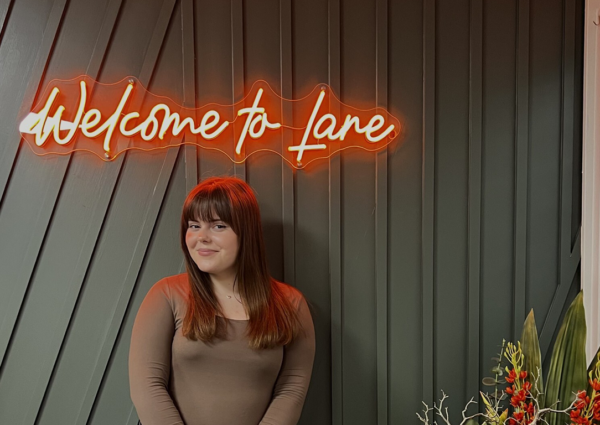Broad match, slim results: Why keyword caution leads to Paid Search success
Nick McAlpine • 20th Apr 2023

Paid Search is a wonderful thing. It’s one of the most widely used methods of performance media, operating on a pay per click (PPC) basis, where an advertiser only pays a cost when their ad is clicked.
By targeting specific keywords and phrases, advertisers can reach users as they attempt to take actions online, such as buying or researching a product or service – this could be shopping for a new jumper, booking a holiday, or ordering a pizza.
As you can imagine, people use search engines in very different ways, and look up some weird, wacky, and wonderful things (trust us) in order to achieve their goal online. Advertisers therefore want to appear for multiple varieties of ‘search terms’ that contain their desired keyword… and this is where things can get tricky.
Let’s use an example, if you were a retailer of walking boots, your core keywords would naturally be ‘walking boots’ . While you’d obviously want your ads to show when someone searches ‘walking boots’, you’d also want your ads to appear when someone searches for similar terms such as ‘buy walking boots online’ or ‘waterproof walking boots’.
What you don’t want to appear for, however, are search terms loosely related to your keyword such as ‘walking in high-heel boots’ or ‘stop blisters from walking boots’.
So how can you prevent this from happening? Read on and we’ll find out.

Keyword Match Types
Paid Search platforms like Google Ads and Microsoft Ads (previously Bing) let you select a target keyword/phrase and set parameters around how close to those terms you want a search query to be in order to trigger an ad.
These parameters are called ‘Match Types’, of which there can be 3 varieties; Broad Match, Phrase Match, or Exact Match.
- Exact Match – as the name suggests – means your ad will only be served when a search query exactly matches the target keywords that you have fed into the platform (with a little wiggle room for punctuation and plurals).
- Phrase Match will show when someone searches for a phrase that contains your entire keyword or a similar variant.
For example, if you have a Phrase Match keyword of ‘women’s jumpers’, your ad may be served for search terms around ‘women’s sweatshirts’ or ‘Iadies jumpers’.
- This format itself can result in unwanted search terms, which can be curbed using what’s known as Negative Keyword Lists.
- Broad Match lets Google serve ads against search terms relative to any part of your keyword or phrase that it deems to be appropriate. This is a sure-fire way to maximise traffic through your Paid Search campaigns, but runs the risk of your ads appearing for a whole lot of irrelevant search queries.
But more traffic is a good thing… right?
Not necessarily. Clicks, landing page views, and sessions on your site are all great vanity metrics, but what really matters is the actions those users take – conversions.
If you get 100 visitors to your site and 5 of them purchase, that’s far better than 10,000 visitors where only 2 of them do… especially if you’re paying £0.50 a click!
Google will tell you Broad Match is the recommended keyword approach, and prompt you regularly in-platform to ‘upgrade’ your keywords to Broad Match for better results. Take this with a pinch of salt unless you’re convinced your product or service is relevant for super-generic terms.
Google’s modus operandi is to get more people clicking on more ads – it’s the organisation’s primary revenue stream – so if your keywords can appear for more search terms and therefore eligible for more clicks, great for Google, not necessarily great for you.
When auditing Paid Search accounts, we’ve seen some absolute shocker search queries that have triggered ads when Broad Match keywords have been used. We naturally can’t go sharing examples, but while some have been hilarious, others – from a brand safety point of view – have been downright dangerous.
So, best just stick to Exact Match then?
You can, and this sometimes is the best route, however the more you restrict your ads eligibility to show, the lower the volume of clicks you’re going to get – from a growth perspective, this isn’t ideal.
The aim of the Paid Search game is to steadily increase the volume of relevant clicks an account receives, thus increasing sales, and growing your organisation over time.
We recommend a test and learn approach, with a combination of Exact and Phrase Match keywords, and a mix of broad and specific search terms to find a sweet spot that provides the strongest optimal traffic for your budget, and the strongest possible results.
–
Lane Media consists of a team of Paid Search specialists with expertise delivering successful PPC campaigns that drive leads, sales and valuable traffic to clients’ digital properties.
Our experience spans several decades with a proven track record of achieving positive results for clients ranging from SMEs to multinational enterprises with e-commerce and lead generation objectives.
If you think your business could benefit from a new or improved Paid Search strategy, get in touch today for a FREE account audit – we’re always up for a new challenge.


